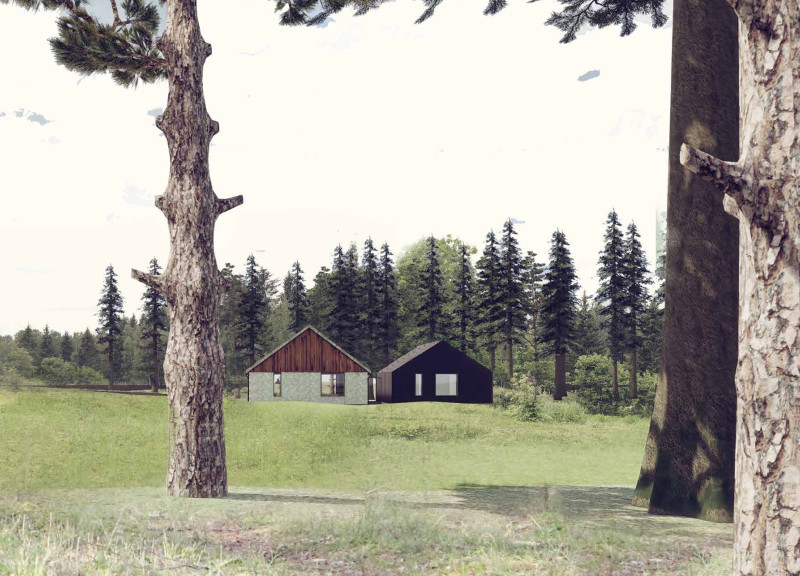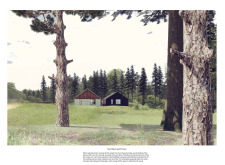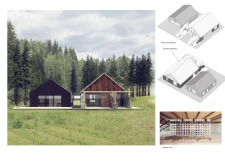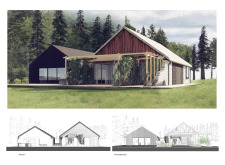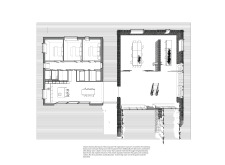5 key facts about this project
Tea Makers Guest House is situated in a rural area, integrating modern hospitality with the character of a traditional barn structure. The guest house functions as a place for visitors while also housing a workshop and drying room. The design centers around preserving historical architecture while meeting current needs, resulting in a mix of old and new.
Preservation of Existing Structures
The approach focuses on keeping the original barn intact. It serves as the heart of the guest house, honoring its historical significance while adapting it for modern purposes. The barn has been reconfigured into a workshop, drying room, and open living area with a mezzanine, ensuring that its unique features remain visible and usable.
Spatial Arrangement and Zoning
The layout clearly separates guest accommodations from work spaces. Bedrooms and a kitchen with a dining space are arranged in a new extension that matches the original barn's proportions. Visitors access their rooms through a glazed battery hall and separate entrances, allowing for a distinct separation from the workshop. This thoughtful zoning enhances comfort for guests and maintains a productive environment in the workshop.
Sustainability Considerations
An important focus of the design is sustainability. Rainwater harvesting and solar glass are integrated to minimize environmental impact and efficiently use natural resources. These sustainable features reflect current architectural standards, helping to meet both ecological and practical requirements.
Materiality
Timber is the main material featured in the design. This choice connects to local building traditions and adds to the overall look of the guest house. Using timber not only supports sustainability but also helps the building blend into the surrounding rural environment, creating a coherent relationship with nature.
The combination of preserved historical elements and new spaces results in a well-considered guest house experience. The design fosters a connection to the landscape while providing a comfortable stay for visitors, focusing on their needs and the integrating environment.


